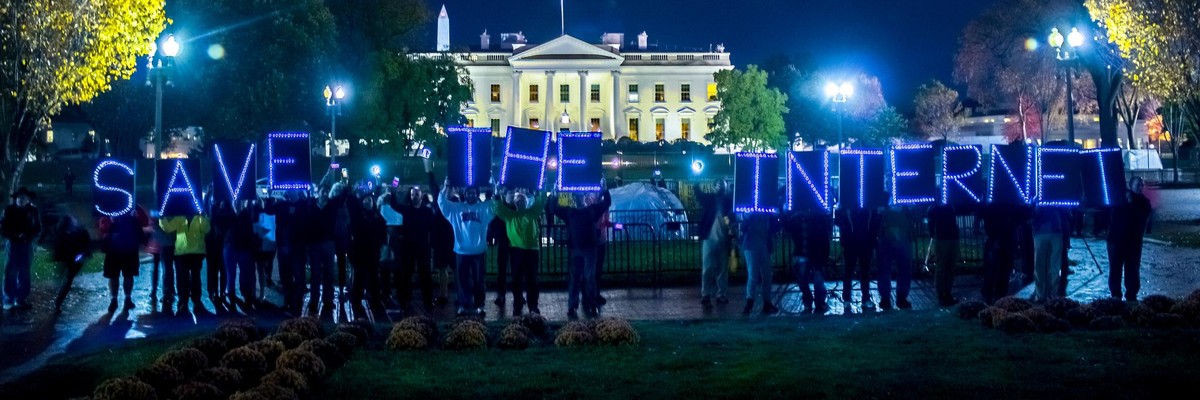Proponents of an open internet are holding a rally on Monday to mark the two-year anniversary of the Federal Communications Commission (FCC) vote that enshrined net neutrality protections that the new Trump administration has already begun eroding.
The 3pm event in Washington, D.C is backed by the Color of Change, National Hispanic Media Coalition, Center for Media Justice, and Free Press, and will feature the FCC's only Democratic commissioner, Mignon Clyburn.
Even before President Donald Trump he took his oath of office, open internet advocates feared the new administration would spell doom for net neutrality, and evidence thus far shows those fears were justified. Already, as the New York Timeswrote earlier this month, newly appointed FCC chair Ajit Pai (who voted against the net neutrality rules in 2015),
took a first swipe at net neutrality rules designed to ensure equal access to content on the internet. He stopped nine companies from providing discounted high-speed internet service to low-income individuals. He withdrew an effort to keep prison phone rates down, and he scrapped a proposal to break open the cable box market.
According to Timothy Karr, senior director of strategy for Free Press, "No FCC chair over the past 40 years has been so bent on undermining the agency's public-service mission and destroying the safeguards on which hundreds of millions of Americans rely."
Laying out the stakes, Max Anderson, coordinator for Human Rights Watch's general counsel's office, wrote last week:
Should net neutrality be scrapped in the U.S., it will enable service providers to throttle internet speeds or block access to websites based on commercial deals they cut with media providers. That would undermine freedom of expression and access to information. Once these practices have been established, it's a short step to other human rights consequences. Governments that already attempt to stifle lawful online expression will welcome a new tool for silencing critics. The FCC should retain its good example to the world and enforce net neutrality. If the internet stands a chance of enabling the realization of human rights, then access needs to be nondiscriminatory and in line with human rights in the widest sense.
In an interview this month with FAIR's Janine Jackson, Jessica Gonzalez, deputy director and senior counsel at Free Press added that
it's incredibly crucial, especially as we resist this administration, that we have access to the tools that we need to communicate and organize. And I'm really concerned, frankly; there's a pretty clear theme emerging from the Trump administration. We have his spokespeople telling the media to shut up, to not cover issues. We have them covering up facts. And then we have Ajit Pai at the FCC, who wants to undo net neutrality and shut down the way that we can communicate and organize. And so it's a very troubling pattern, and I think we need to speak up and speak up loudly.
So what can people do?
"The short answer is to raise hell," said Craig Aaron, CEO of Free Press, to Mercury News columnist Troy Wolverton.
"Net neutrality is an issue that a lot of people care about--millions and millions more than the FCC ever expected," Aaron said. "We need to hear from those people again."

